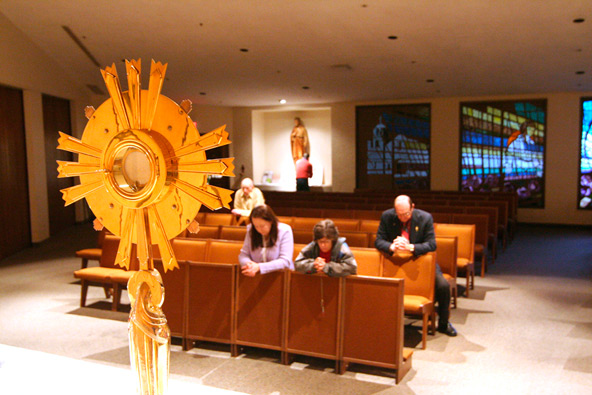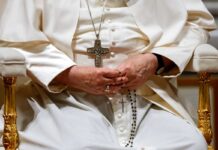
VATICAN CITY (CNS) — Vatican officials are making strategic phone calls to some of the world’s most far-flung dioceses, trying to verify that in each of the world’s inhabited time zones there will be an organized hour of eucharistic adoration coinciding with 5-6 p.m. Rome time June 2.
The Vatican is trying to organize a global hour of prayer around the Eucharist “for the first time in the history of the church,” said Archbishop Rino Fisichella, president of the Pontifical Council for Promoting New Evangelization, the office organizing events for the Year of Faith.
Pope Francis will preside over adoration and benediction in St. Peter’s Basilica beginning at 5 p.m. June 2, the date most dioceses in the world celebrate the feast of the Body and Blood of the Lord.
To celebrate at the same time as the pope, Catholics in Mumbai would begin at 8:30 p.m., those in New York would begin at 11 a.m., in Seattle at 8 a.m., in Honolulu at 5 a.m. and at 1 a.m. June 3 in Sydney.
In at least two time zones — Greenwich Mean Time minus 10 hours and GMT minus 2 hours — there is little hope for participation, the archbishop said; both time zones cover vast areas of uninhabited ocean.
Archbishop Fisichella said the worldwide adoration would “witness to the profound piety found in the church for the Eucharist,” the mystery of the real presence of Christ’s body and blood, which unites and nourishes all Catholics.
While dioceses are free to organize the hour of prayer and adoration as they please, he said Pope Francis has chosen a specific prayer intention for each half hour of the service. The first, Archbishop Fisichella said, will be for the church and its mission of mercy; the second for the needs of those who suffer, including victims of war, the unemployed, the sick, immigrants and prisoners.
— By Cindy Wooden Catholic News Service






